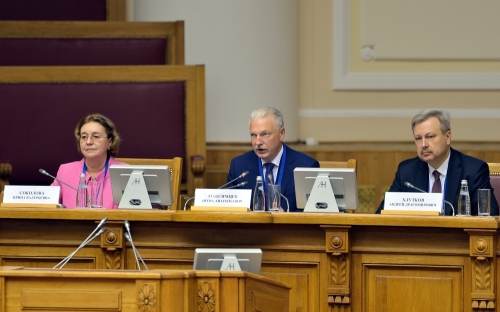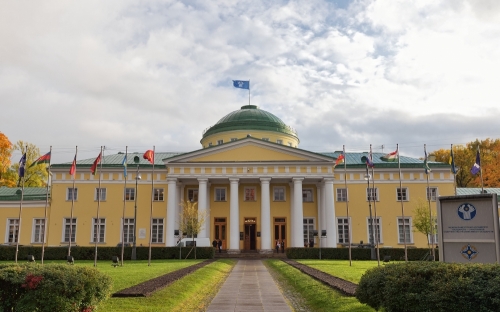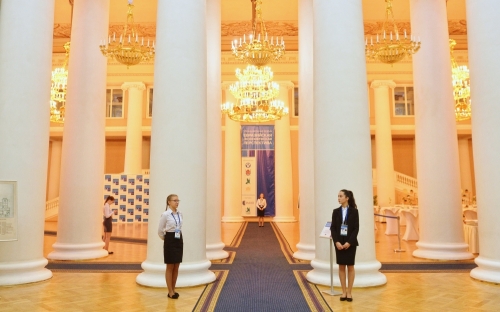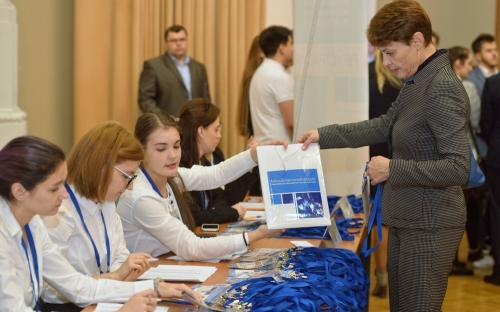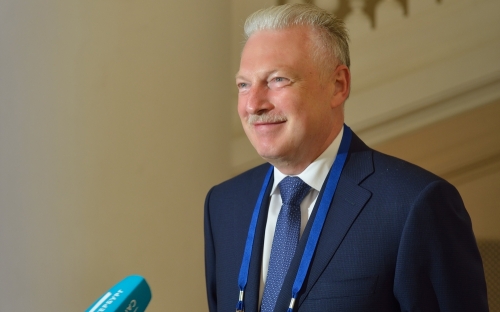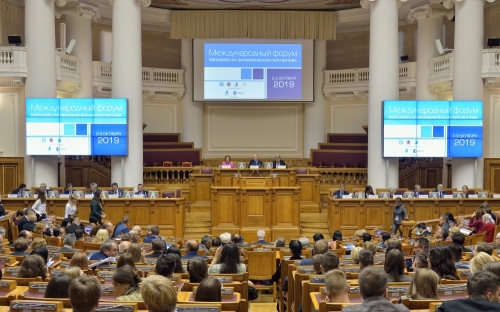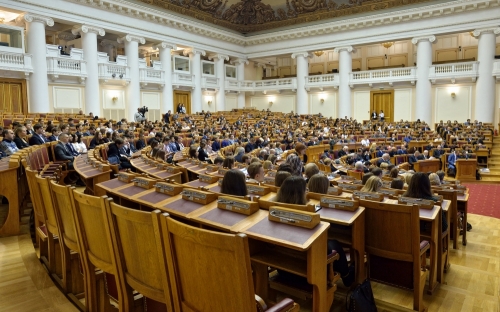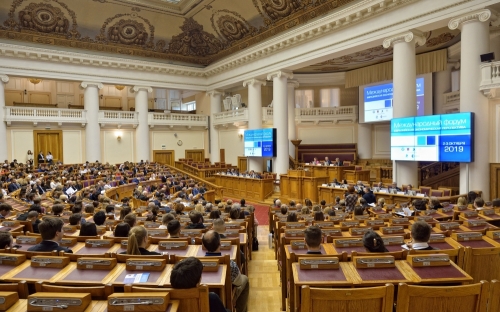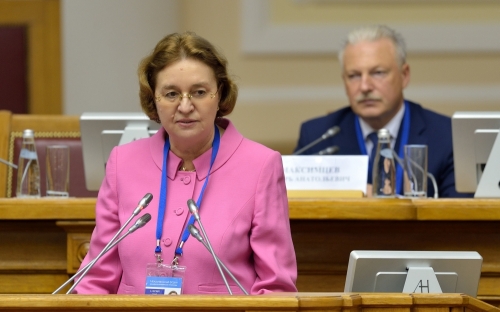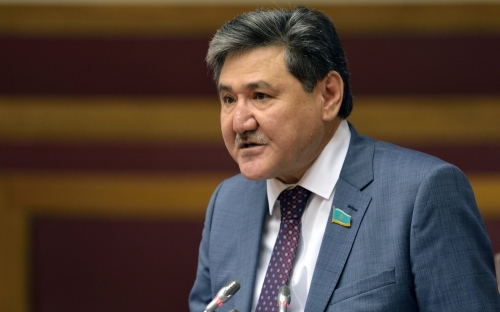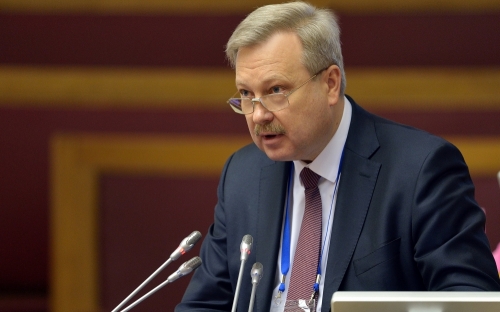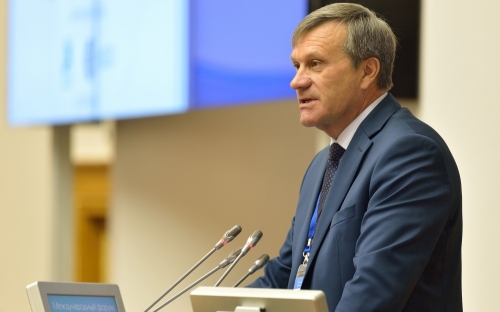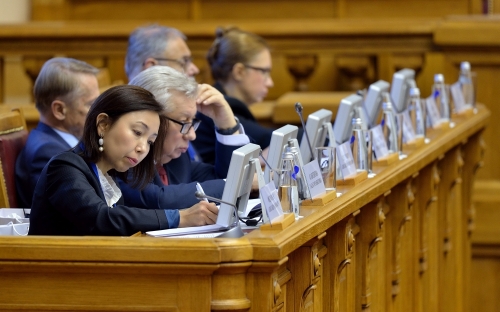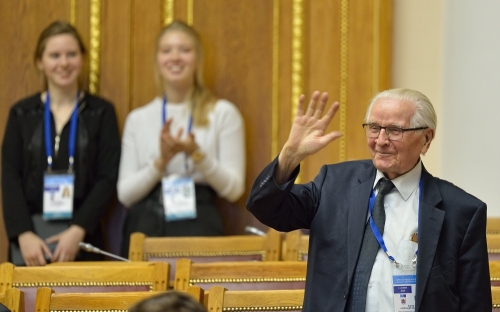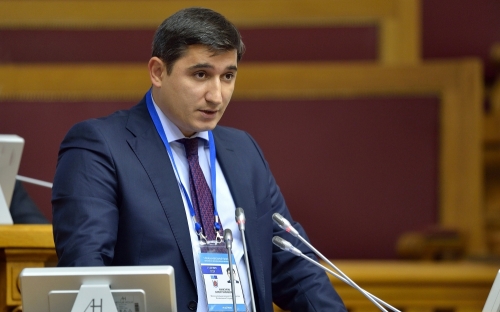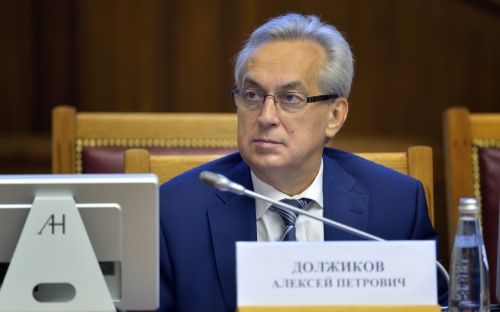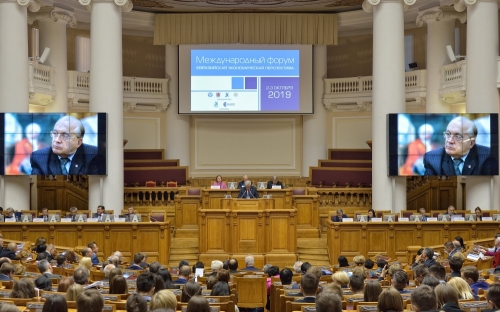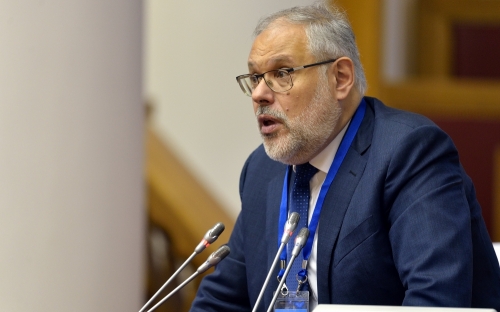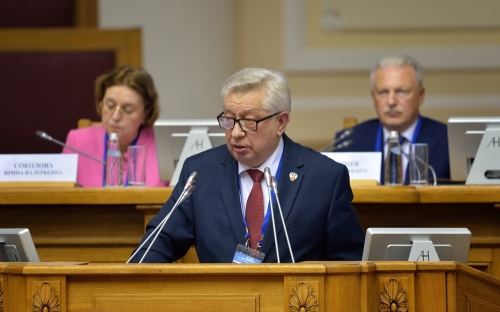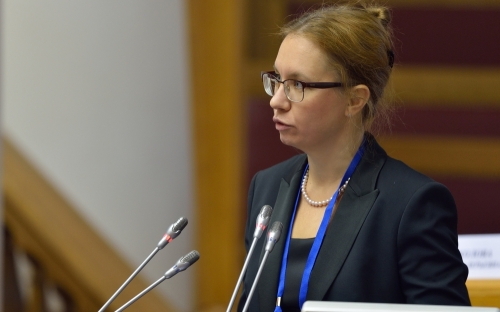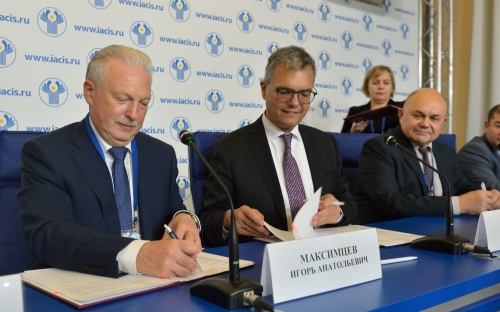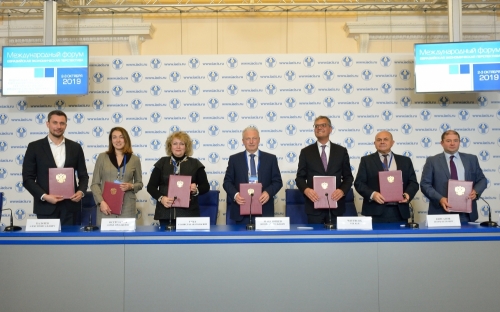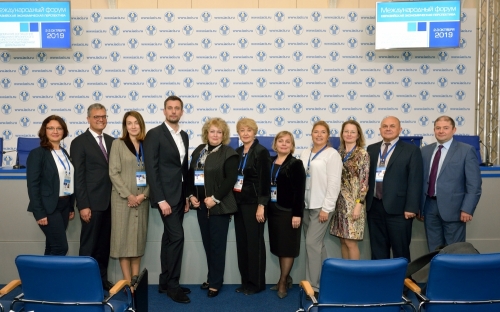The annual international forum "Eurasian Economic Perspective" was held in St. Petersburg on October 2nd and 3d 2019. Over the seven years of its existence, the forum has become an authoritative platform for discussing topical issues of the development of Eurasian integration projects in the post-Soviet space and within Greater Eurasia. The Forum was co-organized by the Committee for external relations of St. Petersburg, the Secretariat of the Interparliamentary Assembly of CIS member States, the Eurasian Association of universities and St. Petersburg State University of Economics.
The Forum discussed development issues regarding the current situation and prospects for the development of the CIS, the EAEU and the Greater Eurasia region.
The Forum was attended by representatives of the legislative and Executive authorities of the member States of the Eurasian economic integration, members of the EEC Board, the CIS Executive Committee, members of the Expert Council on Economics at the IPA of the CIS member States, rectors and representatives of leading universities of the Eurasian Association of universities, economists, politicians and public figures, representatives of the business community.
At the plenary meeting were read out greetings from the President of the Council of States – participants of the CIS Interparliamentary Assembly, Chairman of the Council of Federation of the Federal Assembly of the Russian Federation Valentina Matviyenko, Chairman of the Council of the Republic National Assembly of the Republic of Belarus M. V. Myasnikovich, Chairman of the Senate of the Parliament of the Republic of Kazakhstan D. N. Nazarbayeva, Chairperson Of Majilis Of Parliament Of The Republic Of Kazakhstan N. Z. Nigmatulin, Chairman of the Eurasian economic Commission T. S. Sargsyan, Chairman of the Executive Committee – Executive Secretary of the Commonwealth of Independent States S. N. Lebedev, rector of Moscow State University named after M. V. Lomonosov V. A. Sadovnichy.
Deputy Secretary General of the Council of IPA CIS I. V. Sokolova, Director of the state scientific institution "Center for system analysis and strategic studies of the National Academy of Sciences of Belarus", member of the Presidium of the scientific Advisory Council on socio-economic development of the Republic of Belarus of the National Assembly of the Republic of Belarus V. V. Goncharov, Member Mamytbekov, Deputy Secretary General of the IPA CIS Council-Plenipotentiary representative of the Parliament of the Republic of Kazakhstan A. Zh. Nuskabay, Deputy of The state Duma of the Russian Federation V. I. Katenev, Deputy Chairman Of the Committee on foreign relations of the Administration of St. Petersburg A. D. Khlutkov, Judge of the EAEU Court A. A. Fedortsov, rector of Spbgeu I. A. Maksimtsev, head of the Department of scientific and technical cooperation and innovation of the Department of economic cooperation of the CIS Executive Committee T. T. Mansurov, Chairman of the Executive Committee of the Eurasian Association of universities, Director of the Kazakhstan branch of MSU. M. V. Lomonosova, doctor of Economics, Professor A. V. Sidorovich, Chairman of the Executive Committee of the Eurasian Association of universities, Director of the Kazakhstan branch of MSU. M. V. Lomonosova, doctor of Economics, Professor S. M. Asanseitova, Director of the Institute of economic policy and problems of economic security of the Financial University under the Government of the Russian Federation, doctor of Economics, Honored economist of the Russian Federation S. N. Silvestrov, President of the Foundation for economic research M. L. Khazin, the Head of the Department of world economy and international relations, doctor of Economics, Professor S. I. Rekord.
The Rector of Saint-Petersburg State University of Economics Igor Maksimtsev outlined the tasks of the Eurasian economic forum and the role of St. Petersburg state University of Economics in the development of scientific and educational projects in the Eurasian space.
"In the conditions of growing international competition for resources, our task is to determine our own priorities for the development of the Eurasian economic Union system. Our University is actively working in the Eurasian space as an expert and educational center, combining all the main directions of economic science and education. Our scientists are also conducting research on aspects of the interface within the projects of the PRC and the idea of the "Greater Eurasia" region, the most dynamic region today" - said Igor Maksimtsev.
Vladimir Katenev, Deputy of the state Duma of the Russian Federation, addressed the young participants of the forum, noting that the topic of creating a common financial market and others are a great theoretical help for young scientists, and the practical result of the forum should be works devoted to this problem.
Andrei Khlutkov, Deputy Chairman of the Committee on foreign relations of St. Petersburg, spoke about the city's projects related to the EAEU, as well as about the close cooperation between the city enterprises of St. Petersburg and companies of the Eurasian Union.
On the October 2nd, 2019, as at forum in past, Round Tables on Economics, law, the Greater Eurasia Project, humanitarian cooperation and young scientists cooperation were held.
For the first time at the VII Forum, the program of the event included round tables on security, Eurasian youth cooperation, common values of Eurasian integration and a panel session.
At the round table "Development of the system of common values of Eurasian integration" the participants came to the following conclusions. Firstly, the topic of Eurasianism is an important element of the cultural and philosophical heritage of the CIS and EAEU member States and requires further substantive reflection, including in an interdisciplinary context. Secondly, the relevance of issues related to the values of the Eurasian community is due to the crystallization of new centers of power in the world. The successful development of territories is directly related to the quantitative characteristics of available markets, including human resources, the integration of which requires a clear value platform. Thirdly, the current state of the issue suggests that the primary factors that need to be developed in the context of Eurasian values are the subjectivity of Eurasianism, its physical and cultural boundaries.
The participants of the Round Table "Security of Eurasian Integration: Problems and Prospects" based on the exchange of experience of scientific research and practical developments in the field of security of Eurasian integration and discussion of the challenges of the current stage of geopolitical development, opportunities for strategic partnerships and threats of strategic confrontations, formulated the following conclusions. First, the methodology of strategic goal-setting and planning of forms, conditions and mechanisms of protection of national political and economic interests need serious modernization on the basis of foresight methods and advanced positioning of the CIS and EAEU member States in the world political and economic space. Secondly, the harmonization of legislation in the field of Eurasian security should be considered at three levels: conceptual and scientific, supranational and national. Thirdly, the study of the problems of ensuring the security of Eurasian integration in the context of the challenges and threats posed by the arcs of instability that characterize the current balance and balance of forces should be considered a priority.
Based on the exchange of practical experience, research and expert opinions in the field of analysis and implementation of youth policy and international youth cooperation in the Eurasian region, taking into account the further development of the Eurasian economic Union, the participants of the round table "Eurasian youth policy: goals, success criteria, challenges" came to the following conclusions. First, the development and implementation of a unified concept of youth and youth policy, taking into account such factors as age boundaries, sociological characteristics, dynamics of structural changes of youth in the development process, taking into account specific time phases. Secondly, the development and support of research and sociological research aimed at the study of demographic statistics, demographic and socio-cultural trends, economic and political role of youth in society. Thirdly, the development of youth associations and projects, information and event broadcasting common constructive historical experience, cultural and spiritual values.
The second day of the forum was devoted to International Conference on Economic Security during which scientists from Russia, Belarus, Kazakhstan, Kyrgyzstan and the United States discussed issues of economic security in modern conditions at the mega-, macro - and micro levels.
